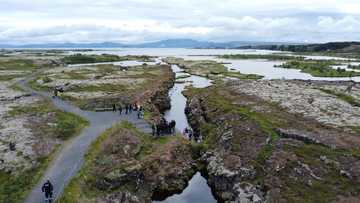'Why are we being ignored' plead the hungry in Ethiopia's Afar
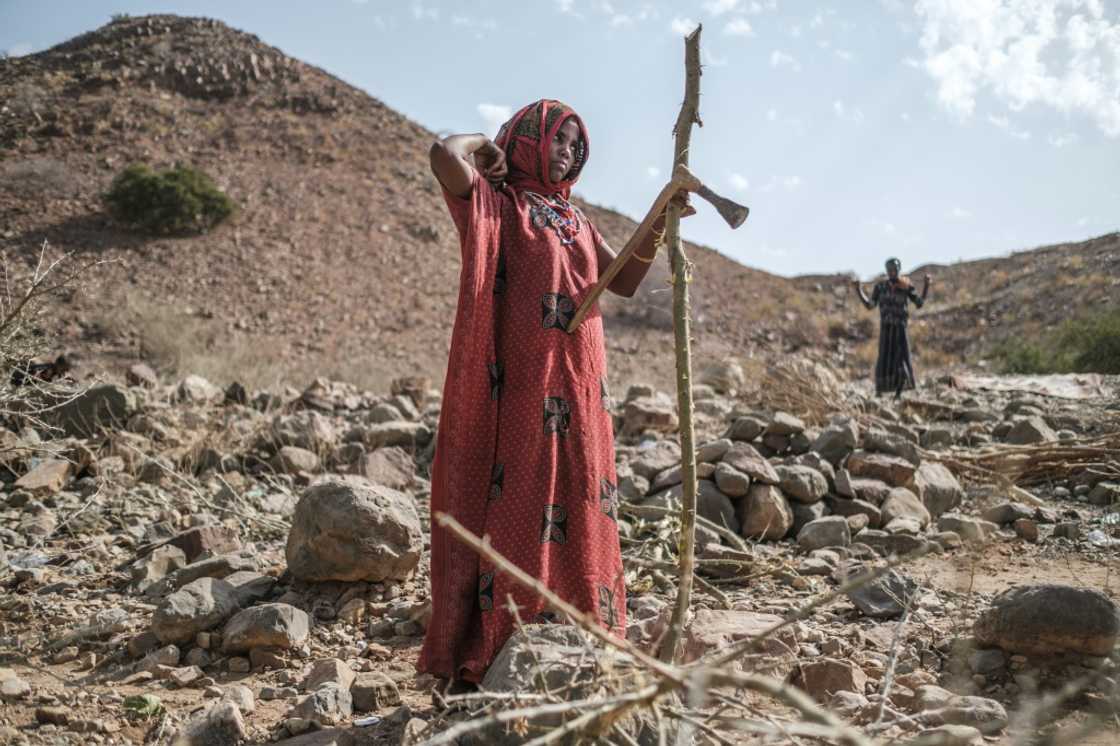
Source: AFP
New feature: Check out news exactly for YOU ➡️ find “Recommended for you” block and enjoy!
From a makeshift camp in Ethiopia's Afar region for people displaced by war, herder Abdu Robso stares in bewilderment at the food aid trucks rolling up the nearby hill towards Tigray.
"Why is this food going to Tigray and not feeding us," the hungry 50-year-old ponders as the World Food Programme convoy slowly winds along the dusty road linking Tigray and the port in neighbouring Djibouti where international aid arrives for the landlocked country.
Along with dozens of men, women and children in the camp in Erebti, an emaciated Abdu says he has been struggling to survive with almost nothing to eat.
The displaced claim they are being ignored while the world focuses on Tigray, the northernmost region ravaged by the brutal conflict that erupted between Tigrayan rebels and Ethiopian federal forces in November 2020.
Fighting has eased since the government and the Tigray People's Liberation Front (TPLF) each declared a truce in March but northern Ethiopia remains in the grip of a humanitarian crisis that has left millions in need of emergency aid.
In January, Abdu and his family had to hastily flee their hometown of Abala, about 60 kilometres (40 miles) away on the border with Tigray when the TPLF bombarded the area and advanced into Afar.
PAY ATTENTION: Enjoy reading our stories? Join YEN.com.gh's Telegram channel for more!
After days of walking and an hours-long truck journey, Abdu along with his wife and several of their 22 children reached a camp for displaced people in Afdera, hundreds of kilometres from Erebti.
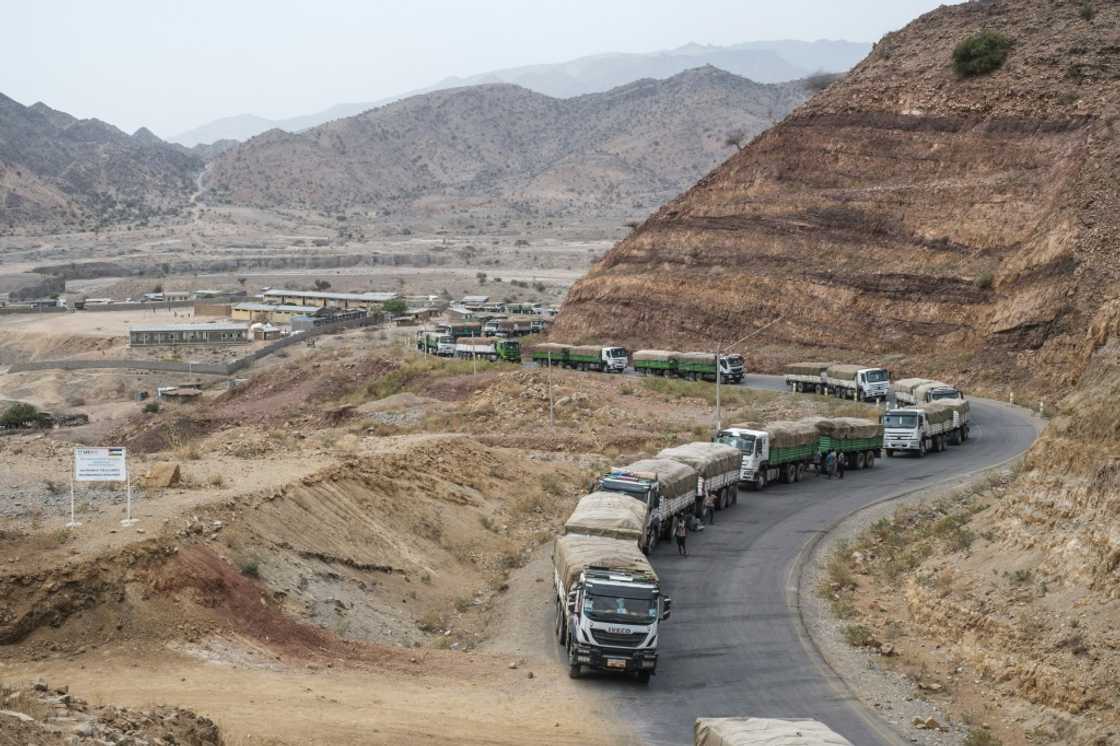
Source: AFP
But after the TPLF withdrew from Afar in April, the regional authorities told the displaced to return home, promising help.
Abdu and his family headed back to Erebti, where they are still waiting for aid.
"We answered the call and here we are with nothing," he said.
'What have we done wrong?'
The residents of Erebti take shelter from the searing heat under plastic sheets stretched under trees on the edge of a dry riverbed that lies below the road.
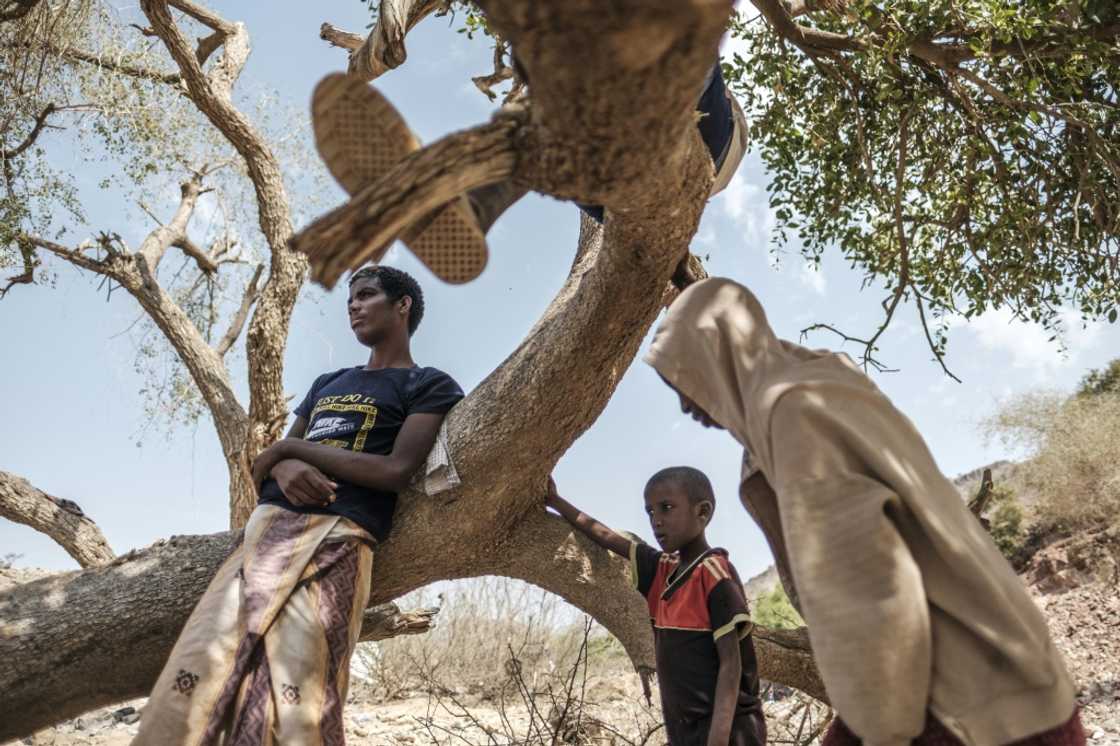
Source: AFP
Even as lunchtime approaches, the fires remain unlit. Children eat some fruit taken from the trees. The weakest sleep.
"Trucks carrying aid for Tigray pass here. What about us? What have we done wrong? Why is no aid coming here? We are also hungry," protests Aldim Abdela, a 28-year-old shepherd.
Mustapha Ali Boko says the TPLF knows how to mobilise the strong Tigrayan diaspora and its international networks, built up during the 27 years that the party dominated national politics until Prime Minister Abiy Ahmed took power in 2018.
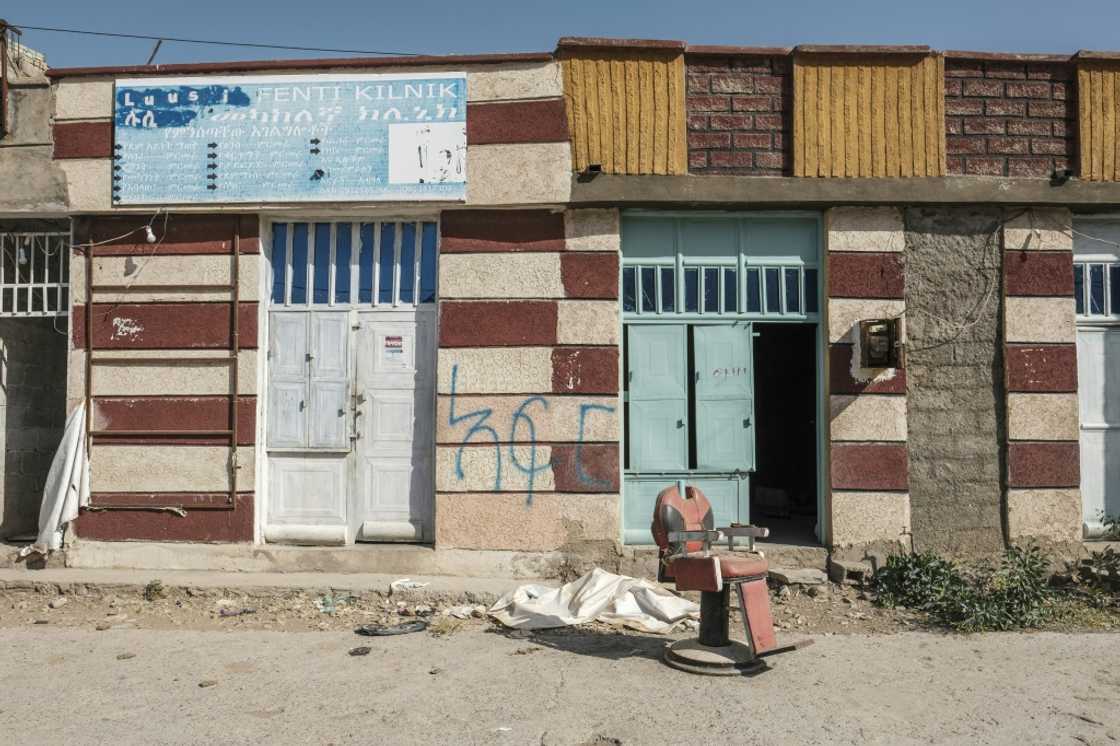
Source: AFP
"The reason is that Tigray has a strong leadership and we (the Afar) don't," the 45-year-old says, complaining of "discrimination" by the international community.
In Erebti, he says, "some sleep on an empty stomach".
"People don't have medicines... they don't have food and water."
However, the WFP's country director for Ethiopia, Claude Jibidar, insisted: "WFP has continuously been delivering food to the Afar region. And I know that sometimes, it's less talked about but it is being done."
Across all of northern Ethiopia -- Tigray, Afar and Amhara -- more than 13 million people are in need of food aid, according to the United Nations.
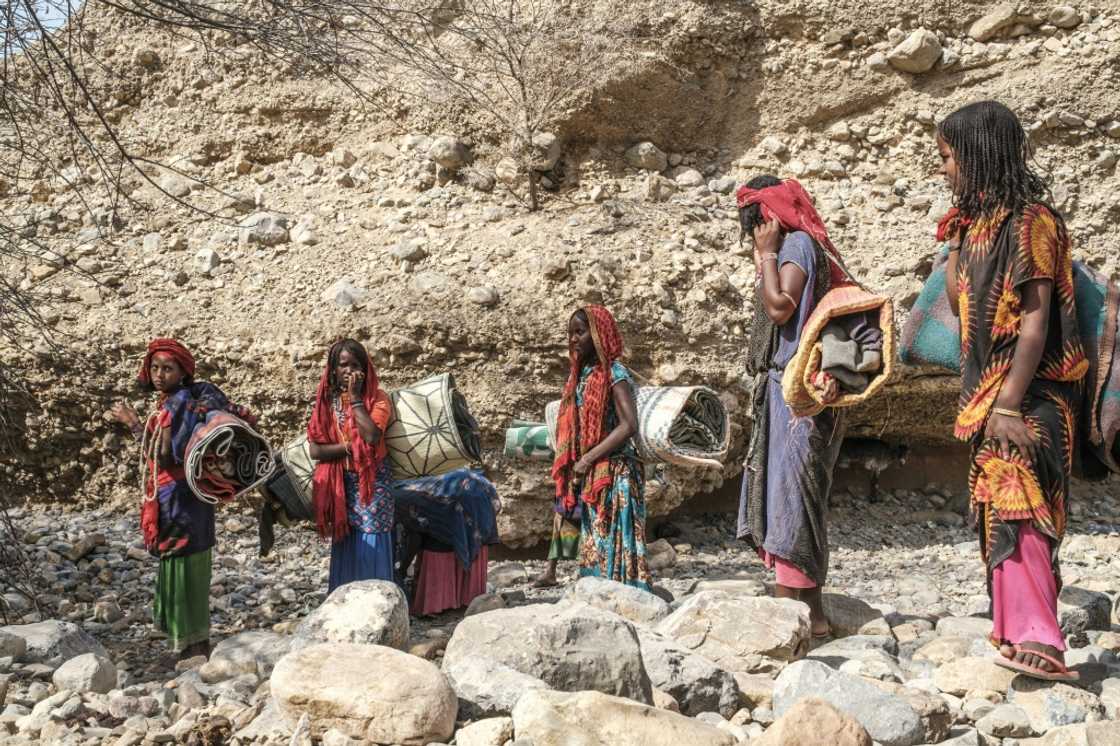
Source: AFP
In July, the UN's humanitarian agency OCHA said the situation in Afar remained "dire with alarming levels of food insecurity and malnutrition" due to the combined effects of drought and conflict, ensuing displacement, lack of market access, and high food prices.
Ali Boko says that the only aid has come from a local charity, the Afar Pastoralist Development Association.
APDA official Valerie Browning, an Australian nurse who is married to an Afar and has lived in the region for 33 years, says she has never seen such extreme conditions.
"No Afar wants the people of Tigray to starve. That's obvious, but on the other side, the world and the Tigray people and the government of Ethiopia should not want the Afar to starve... and the unfortunate thing is that this is happening," she says.
"The humanitarian situation is beyond crisis."
'Whole town looted'
The people in Erebti say it is impossible to return to Abala.
It is now a virtual ghost town, abandoned by residents, its stores all empty, according to AFP journalists who visited.
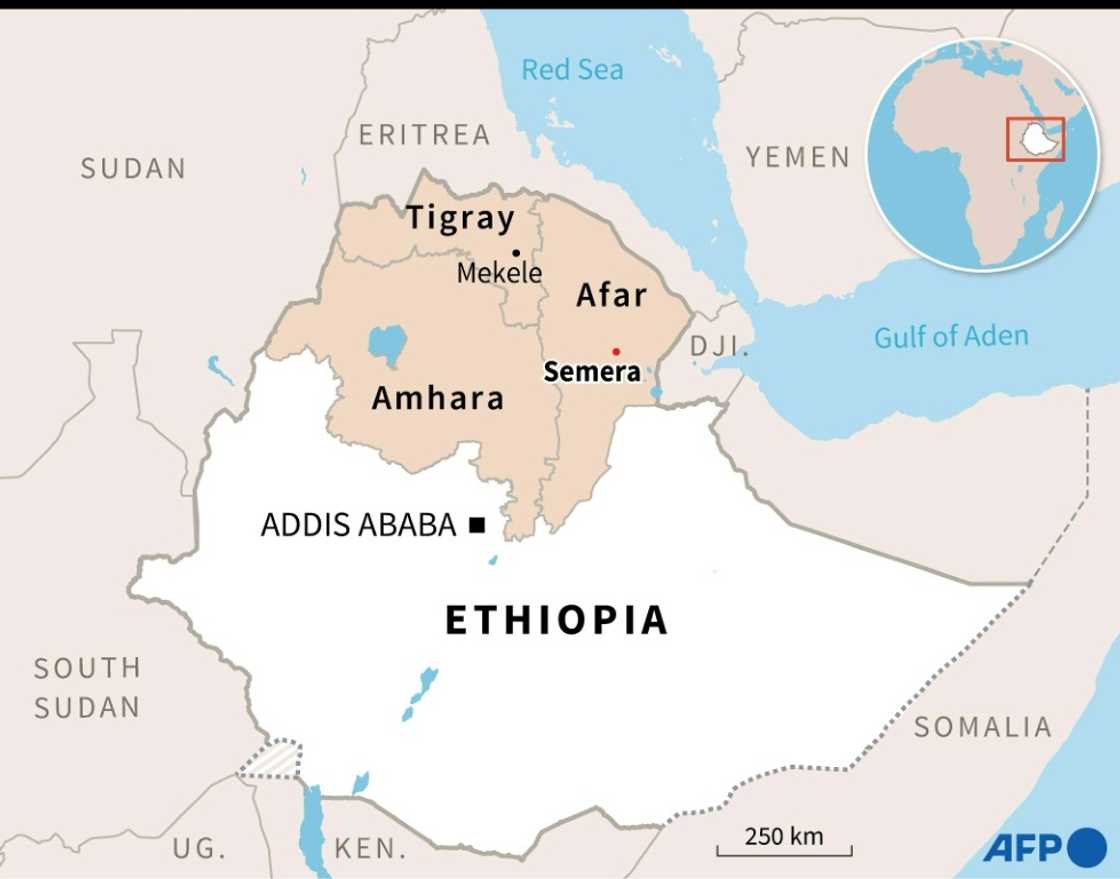
Source: AFP
"I went to Abala, I saw that my house had burned down, all the houses had burned down," says Ali Boko. "Our homes are destroyed and our cattle have disappeared."
"The whole town has been looted," adds Abdu Robso.
The hospital has been wrecked, its doors and windows destroyed, and stripped of equipment such as resuscitation and X-ray devices, incubators, beds and mattresses.
Only a dozen families have returned.
Ali Mohammed says his daughter was wounded in the fighting, and so he was unable to go far.
"They took a lot of things from the house, my TV, my laptop..." says the 45-year-old farmer.
"Conditions are very harsh. The flour is full of weevils. We sift it, but when we eat it it tastes sour. We have no oil, no onions, we eat berbere (a local spice mixture) mixed with water.
"There is no medicine, no water. We drink water from the river and we get sick," he says, anxiously awaiting the help that the authorities promised would arrive soon.
"Here we live with monkeys and stray dogs."
New feature: Check out news exactly for YOU ➡️ find "Recommended for you" block and enjoy!
Source: AFP




